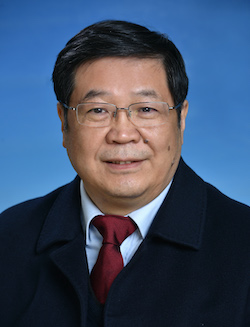Home> Plenary Speakers
Liu Maili
Updated: 2022-09-01

Academician at the Chinese Academy of Sciences (CAS)
Expert in biological magnetic resonance and analytical chemistry
Research fellow and chief scientist at the Innovation Academy for Precision Measurement Science and Technology at the CAS
Liu graduated from the Department of Chemistry of the Northwest University in 1982, majoring in analytical chemistry. In 1996, he received a PhD degree in analytical chemistry from Birkbeck, University of London. In 1999, he received a sponsorship from the National Science Fund for Distinguished Young Scholars.
Liu served as director of the Wuhan Institute of Physics and Mathematics at the CAS, director of the State Key Laboratory of Magnetic Resonance and Atomic and Molecular Physics, chairman of the Professional Committee of Magnetic Resonance at the Chinese Physical Society, and as a member of the general expert group of the protein machines and life process regulation project in the National Key R&D Program.
Currently, he works as a member of the Expert Advisory Committee at the Chemical Science Department of the National Natural Science Foundation of China, and is chief editor of Magnetic Resonance Letters and Chinese Journal of Magnetic Resonance. He has received the National Labor Day Medal and a special government allowance from the State Council, and has won the title of young and middle-aged expert with outstanding contributions in Hubei province.
Liu has been committed to research on nuclear magnetic resonance technology, methods and application. He took the lead to establish improved watergate pulse sequences for solvent suppression in NMR spectroscopy, which was provided to users by major manufacturers as a built-in standard method. Liu also invented a diffusion-relaxation weighted method for NMR separation, which made important contributions to the development of magnetic resonance analysis in China.
Liu has published more than 270 SCI papers in domestic and globally-renowned journals. He won first prize in the Hubei Provincial Natural Science Award in 2006, and first prize in the Hubei Provincial Technological Invention Award in 2018.
